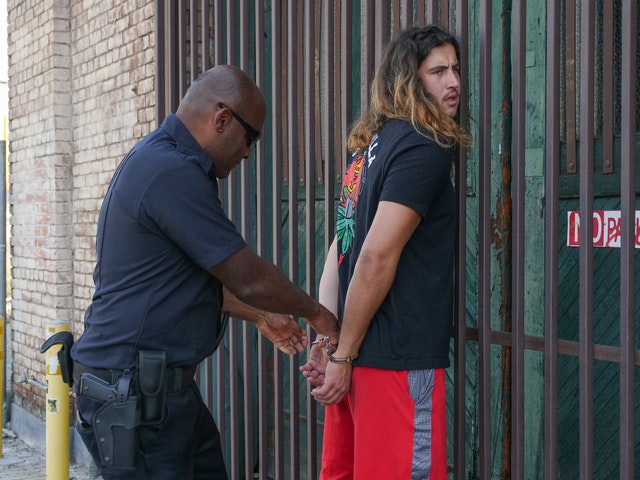“Miranda Rights are being taken away!” — you may have seen these headlines and social media posts recently after the Supreme Court’s ruling in the case of Vega v. Tekoh. This was a civil case in which the Court ruled that someone arrested for a crime can not sue for monetary damages if the officer does not issue a Miranda warning informing them of their rights. We understand this can be a confusing topic, so what exactly are your Miranda rights, and what happens if you are not informed of them? Our criminal lawyers in Raleigh are providing a more in-depth look at this question to help you know your rights.

What Are Miranda Rights?
If you’ve ever watched a movie or TV show where a police officer interrogates a suspect, you’ve probably heard them read the Miranda rights telling the criminal suspects that what they say can be used against them and that they have the right to an attorney. This is a legal requirement for law enforcement officers to advise a criminal suspect’s right to protect themselves from self-incrimination as well as their right to counsel in accordance with the Fifth and Sixth Amendment. Based on the Supreme Court’s ruling in US v. Plugh, the warning should include:
“You have the right to remain silent. Anything you say can be used against you in court. You have the right to talk to a lawyer for advice before we ask you questions. You have the right to have a lawyer with you during questioning, if you cannot afford a lawyer, one will be appointed for you before any questioning if you wish. If you decide to answer questions now without a lawyer present, you have the right to stop answering at any time.”
This notification of the individual’s rights is called the Miranda warning, and it must be provided to suspects who are in the custody of the police before they are questioned, though it doesn’t have to be read exactly verbatim as long as the intent and meaning are clear. Regardless of the setting, whether it’s at the police station, the scene of a crime, or the suspect’s home, it is necessary to note that if the individual is in police custody and is not free to leave, the police must issue the Miranda warning. However, if an individual is not in custody and is free to leave, the officer is not legally required to inform the individual of their rights.
Origin of Miranda Rights
Miranda rights became a part of United States criminal law in 1966 during the Supreme Court decision in Miranda v. Arizona. In 1963, Ernesto Miranda was arrested on charges of kidnapping and rape and was interrogated for several hours by police officers. During the interrogation, he signed a confession. However, the Court found that the police officers did not inform Ernesto Miranda of his right to counsel nor that he had the right to not incriminate himself, and thus, his confession was not voluntary and should not have been admitted into the trial against him. On June 16, 1966, the Supreme Court, led by Chief Justice Earl Warren, issued a 5-4 decision overturning Miranda’s conviction and requiring a retrial.
After this decision was given, state and federal law required arresting officers to inform suspects under arrest and of their rights prior to interrogation. Without notification of the Miranda warning, as it became known, any of the suspect’s answers or details of the case are not admissible in court.
What Happens If You Don’t Receive a Miranda Warning?
If you are in police custody or the custody of the Department of Justice (such as the FBI, DEA, or other organizations under the DOJ’s purview), a law enforcement officer must read you your Miranda rights. Failure to do so means that in most cases, your responses can not be used as evidence against you to prove that you committed the crime.
However, that does not mean that anything you say is completely off-limits. It can be used to attack your credibility, if what you say pre-Miranda conflicts with something you said either to the police or during your trial. Your statements can also be used to show that you are a threat to public safety or can be used to track down another witness who can then testify against you.
While your Miranda rights are incredibly important, they aren’t a fail-safe to protect you against the consequences of what you say to law enforcement. That’s why it is so important to not say anything to the police except for your name without having a criminal lawyer present to represent you.
Civil Action for Not Reading Miranda Rights
As we mentioned above, you may have seen that the Supreme Court ruled in a case related to the Miranda warning. Basically, in Vega v. Tekoh, the Court ruled 6-3 that a suspect could not file a civil case or receive compensation if they were not read their Miranda rights prior to being questioned. This doesn’t diminish the suspect’s rights in a criminal case and officers are still required to inform suspects prior to questioning. It only affects whether an individual can sue a police department if they weren’t informed of their rights.
Speak with a Defense Attorney in Raleigh 24/7
If you have been arrested or are being questioned in connection to a crime, you need an experienced criminal lawyer to represent you and ensure your rights are protected. In addition to representing clients in state cases, we are also federal lawyers representing clients in the Eastern District of North Carolina. For a free case consultation, call us today at (919) 887-8040 or fill out the form below to get started.
